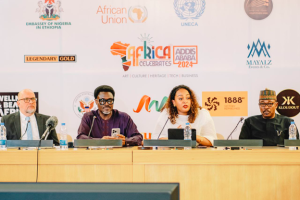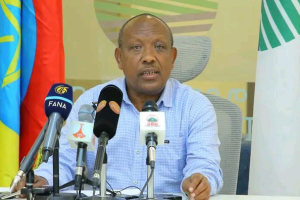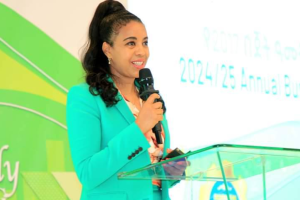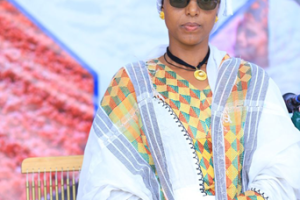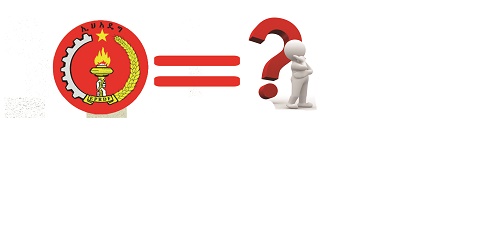
Following the announcement of Ethiopian Peoples’ Democratic Front (EPRDF) to form a single national party comprising various actors including member parties and the competing ones, this unprecedented political action has been hot issue among contesting parties and experts.
Last Wednesday, EPRDF Public and International Relations Head Sadat Nesha told a local newspaper that the study that has identified ways and possibilities of forming a single national party has been almost finished.
Accordingly, various discussions would be held between the EPRDF and its affiliated parties. After the discussion, the parties are expected to pass a decision to establish a united national party at the end of this budget year, he said.
In addition, EPRDF has a plan to open its door to competing political parties that have keen interest in creating merger with the incumbent.
In his interview with the newspaper, Sadat vividly stated that the party will not negotiate over identity politics and federal system.
In few months, the EPRDF would be a united national party integrating affiliate parties into the ruling coalition, Prime Minister Dr. Abiy Ahmed had said in his recent discussion with participants drawn from various emerging states.
“The transforming of EPRDF to a national party will pave the way for any fellow citizen who is capable of leading the country will make him/her to join the party and serve this great nation in each position including the Office of the Prime Minister,” he disclosed.
However, Temesgen Tessema, a Law Lecturer at Wollo University, is doubtful that the formation of a single national party is taking account of the existing loopholes of the ruling collation’s political principles and the supreme law of the country.
Over the past two decades the nations, nationalities and peoples of Ethiopia have been exercising the right to self-administration ,but becoming a single party might undermine this right when the ruling coalition forms unity dismantling its ethnic based member parties that have been administering various states using the ethnic based federalism structure, he notes.
“This means rejecting article 39 of the constitution which states the right to self-administration up to secession. Converting EPRDF into a united national party will create havoc in assigning officials to a given state, if they do not hail from this particular state. Forming coalition between parties is possible. But, the constitution promotes the right of groups than individuals thereby narrowing the possibility to establish the unity shortly.”
Nationalities are exercising their right not as a citizen but as a group. For instance, the seat in the House of Federation is assigned based on the population of nationalities. Each member is there representing the number of his/her ethnic group. In this regard, the unity might fail to fill the gap, unless the constitution is amended, according to Temesgen.
The constitution gives inalienable rights to nations, nationalities and peoples of Ethiopia and so transforming EPRDF in to a national party is tantamount to declaring war against the ethnic based federalism. On the other hand, there seems no initiation to amend the constitution, he states. Therefore, erasing the right to self-administration and realizing the unity might create a seceded state by applying article 39 of the constitution [Every Nation, Nationality and People in Ethiopia has an unconditional right to self-determination, including the right to secession.]
Among the ruling coalition, the Oromo Democratic Party (ODP) recently announced that it would not negotiate over the federal system. The party also stated its precondition saying it won’t change its core political values like upholding the right to identity and federalism among others. Hence, the ODP’s statement and the EPRDF’s announcement to become a national party contradict each other, as to Temesgen.
“I think the decision is made to gain popular support in the shortest time possible. However, it is so difficult to realize a united party as much as faster because the existing laws and administrative system have to be amended in the first place.”
Despite the challenges, if the ruling coalition achieves the move to form a single united party, there would be no TPLF, ADP, ODP and SEPDM that are currently in position administering the Tigray, Amhara, Oromia and SNNPs states respectively.
Oromo Liberation Front (OLF) Party Spokesperson Tolera Adeba notes that his party supports the ideas of parties’ coalition or unity in a bid to be competent enough in the upcoming general elections. OLF together with other parties has been endeavoring to ensure the right of forming coalition and freedom of strengthening one’s party.
Following the unity, the nonexistence of ODP won’t affect OLF as both have different political missions. OLF is now looking for possibilities to form coalition with other parties to ensure real democracy and justice. Asked about whether the OLF is keen to use the invitation of EPRDF to form a single united party with contesting parties , he says his party is looking into the situation seriously right now .
Dr. Dessalegn Chanie is a Chairperson of the recently formed Amhara Peoples National Movement Party (NAMA). He believes that currently EPRDF is rushing to form unity mainly to win the upcoming general elections through shifting direction and persuading a number of ethnic groups to cover its incapability to answer the long lived demands from the people. Therefore, the establishment of the unity would not affect NAMA, he states.
As to him, NAMA is expanding its routes beyond the Amhara State where various Amhara nationalities are living. There is also a plan to form coalition with other parties including from other ethnicbased parties. “Anyways, the peoples of Amhara are well aware of that neither Amhara Democratic Party (ADP) nor a united EPRDF will be guarantor of their demands. Therefore, we are so confident to achieve our goal, winning the election in each poll we are running for.”
According to the expert, the establishment of the unity might face notable challenges so long as the laws and the deep rooted ethnic based administrative structure are functional. On the other hand, the politicians believed that the formation of unity among the ruling coalition won’t be a challenge for competing parties as the public knows whom to elect.
The Ethiopian Herald March 5, 2019
BY YOHANES JEMANEH


